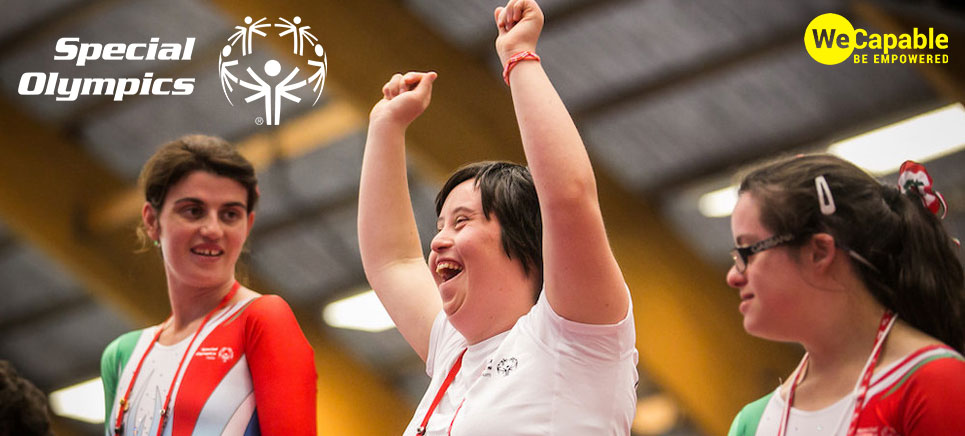Special Olympics is the world’s largest inclusive sports organization for children as well as adults. It is a global movement that accepts and welcomes every single individual regardless of their abilities and disabilities. With their unified sports partners in more than 172 countries, the movement is creating a better world order with equality, joy and better fitness.
In this article, let us introduce you to the Special Olympics, a sports organization that stands true to the principle of THE SPIRIT OF SPORTSMANSHIP.
Beginning of the Special Olympics
Special Olympics was officially founded on 20 July 1968 in Washington DC. The founder, Eunice Kennedy Shriver, is considered a pioneer in the worldwide struggle for the right of people with intellectual disabilities. She started this worldwide movement called Special Olympics as a backyard summer camp for children with intellectual disabilities.
Eunice Kennedy was named a trustee for Joseph P. Kennedy Jr. Foundation, a foundation that worked for the human rights of persons with intellectual disabilities. While working with the foundation she came in contact with many individuals with intellectual disabilities. In order to understand their lives better, Eunice started fact-finding trips around the U.S. institutes for persons with intellectual disabilities along with Sargent Shriver. She did a lot of things for people with mental retardation, especially after her brother, John F. Kennedy, got elected as President of the United States.
In June 1962, Eunice Kennedy Shriver organized a summer camp for young children with intellectual disabilities at her home in Washington DC. After the successful completion of her first ‘Shriver Camp’ she organized the second camp the very next month. Volunteers were recruited for providing one-to-one mentoring to the young campers. From then onwards they organized such camps every year with more number of campers. Finally, on 20 July 1968, the first international Special Olympics summer games were held in Chicago marking the beginning of an international movement called Special Olympics.
It was in September 1962 that Eunice Kennedy revealed her and her family’s real motivation behind their endeavors for the rights of people with intellectual disabilities. Eunice Kennedy revealed that she has a sister with an intellectual disability. The Kennedy family set an example for people who felt shame or guilt in embracing their family members with intellectual disabilities. The incident is considered important in changing the overall attitude towards intellectually challenged people in the United States and beyond.

The 1968 Special Olympics Game
The first Special Olympics held in 1968 was a one-of-its-kind event. The aim of the event was to put athletes with intellectual disabilities in a positive spotlight that highlighted their abilities rather than disabilities. This was the first time that these athletes got the chance to compete and have fun in the full public view without being stigmatized. The event created enough heat to slowly melt centuries of prejudices and misunderstandings against persons with intellectual disabilities.
One thousand athletes with intellectual disability from the U.S. and Canada made history while proudly marching with their state flags into Soldier Field, Chicago on 20th July 1968. These athletes competed in over 200 challenging events in three official sports – track & field, swimming and floor hockey. Although athletes were awarded gold, silver and bronze medals the main focus was on having fun and competing with sportsman spirit.
Special Olympics in its Present Form
Special Olympics, just like the Paralympics, is recognized by International Olympic Committee. But, unlike the Paralympics, the Special Olympic events are not held in conjunction with the Olympics. One or more Special Olympics competition is held every day all around the world including the local, national and international events. People with intellectual and physical disabilities are provided training all year round.
The Special Olympics World Games are conducted alternatively as summer games and winter games at an interval of two years. This means Summer Special Olympics World Games and Winter Special Olympics World Games both reoccur every four years. The torch that is carried and lit at this game is named as the ‘FLAME OF HOPE’. Special Olympics have more than 30 Olympic-type individual and team sports.
The athletes are offered Special Olympics programs free of cost. Currently, more than 5.7 million athletes are enrolled worldwide with Special Olympics. Researches have shown that sports and such physical activities are beneficial for people with intellectual disabilities. Hence the organization promotes every individual with intellectual disabilities to get trained and participate in various programs of Special Olympics. To participate in the Special Games the athletes need to be over 8 years of age with certification about their intellectual disability or cognitive delays.
Special Olympics Young Athlete Program is designed for children between 2 and 7 years of age. In this category children with and without disabilities are trained together. Children with intellectual disabilities learn the skill of socialization. On the other hand children without disabilities learn the lesson of inclusiveness at a tender age through this special program.
The winners in these games are awarded gold, silver and bronze medals respectively for first, second and third places. Athletes from the fourth to the eighth position are given ribbons of participation.
Unified Sports is the new concept introduced by Special Olympics committee. Athletes with and without disabilities are trained and promoted to play as teammates. The motto behind this initiative is to invoke the feeling of mutual trust and respect. Thus creating a path for understanding and friendship.
Use the citation below to add this article to your bibliography
"Special Olympics: Games, History, Events and Importance." Wecapable.com. Web. June 4, 2025. <https://wecapable.com/special-olympics-games-history-events-importance/>
Wecapable.com, "Special Olympics: Games, History, Events and Importance." Accessed June 4, 2025. https://wecapable.com/special-olympics-games-history-events-importance/
"Special Olympics: Games, History, Events and Importance." (n.d.). Wecapable.com. Retrieved June 4, 2025 from https://wecapable.com/special-olympics-games-history-events-importance/

I wish it can be introduced in my country as we have a lot of disabled people here and no games have been introduced at all. I am a disabled person, not by birth but due to sickness. I am a stroke survivor from Zambia.